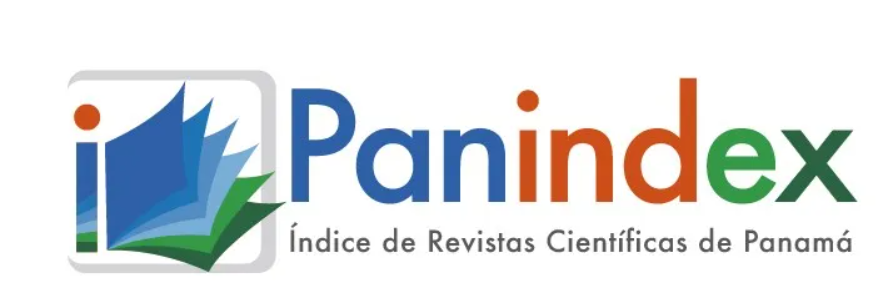The content of the publications and the links suggested in them are the sole responsibility of the authors and not of the METROPOLITAN UNIVERSITY OF EDUCATION, SCIENCE AND TECHNOLOGY (UMECIT) or CATHEDRA magazine. They are protected by international copyright laws just as the UMECIT and CATHEDRA logos, hence their reproduction is totally prohibited
This work is licensed under a Creative Commons Attribution-NonCommercial-NoDerivatives 4.0 International License.
The authors maintain the copyright and transfer the right of the first publication to the journal, with the article registered with Creative Commons Attribution-NonCommercial-NoDerivatives License, which allow others They can download the works published in this magazine and share them with other people, as long as their authorship is recognized, but they cannot be changed in any way nor can they be used commercially.
Authors are recommended to include their work in social networks such as Researchgate and institutional repositories once the article or visible fact has been published on the journal page, without forgetting to include the digital document identifier and the name of the journal.



Abstract
The Mineral Resources Code of Panama is an outdated legal instrument from 1963; it was created in accordance with the repealed Constitution of 1946, which currently makes it a completely unconstitutional and illegitimate norm, both because it violates the current Constitution of 1972 and because it was approved by the questioned figure of Decree-Laws; that is, it does not arise from the Legislative Branch, it arises from the Executive Branch, without three debates or public citizen participation. At the time it was adopted, there were no clearly defined criteria for environmental protection in the world, nor the principles and norms of Environmental Law arising from the summits of 1972, 1982, 1992, 2002 and 2012, which also established very clear parameters on Sustainable Development and the Sustainable Use of Natural Resources. At the time of submitting this research to the competition, winning it and starting it in 2022, the Mining issue in Panama was strongly questioned from a social, ethical, environmental and even national economic point of view since there were no clear references to the real benefits it left in the country, versus the terrible environmental damage it caused to nature (Nature that is already recognized in Panama by Law 287 of 2022, as a Subject of Law); Our work focused on investigating whether there was any legal alternative to achieve a middle ground between naturally irreconcilable positions (Extractivists and conservationists). As the research progressed, the socio-political crisis experienced throughout Panama in 2023, caused by a Mining Contract-Law that was approved in record time and in record time also declared unconstitutional (less than a month between both events), contributed tremendously to enriching the content of this work and strengthening the analysis, results, final considerations and proposals expressed here.
Keywords
References
Barría Moscoso, L. (2016). Discurso de la Conmemoración del Centenario de la Codificación en Panamá. Obtenido de https://acrobat.adobe.com/id/urn:aaid:sc:VA6C2:1881550a-233f-4085-9c64-1a7ce1ad0afe
CEPAL. (2018, 4 de marzo). Obtenido de https://repositorio.cepal.org/server/api/core/bitstreams/a6049491-a9ee-4c53-ae7c-a8a17ca9504e/content
Comisión Técnica de Desarrollo Académico CTDA. (2024, agosto). Obtenido de https://ctda.up.ac.pa/index.php?title=3&title_1&op=1&col=AFD
Constitución Política de Panamá (1904). Constitución Política de Panamá. Panamá: Gaceta Oficial.
Constitución Política. (1941). Constitución Política. Panamá.
Constitución Política. (1946). Constitución Política. Panamá.
Constitución Política. (1972). Constitución Política. Panamá.
Corte Interamericana de Derechos Humanos. (2006). Control de Convencionalidad.Cuadernillo N° 7 de Jurisprudencia de la Corte Interamericana de Derechos Humanos, 2-53.
Gallego, J. C., Gal, D. M., & Galan, D. M. (2023). Obtenido de https://efiap.carm.es/web/descarga?ARCHIVO=Tema%2014-Admin%202023.pdf&ALIAS=ARCH&IDCONTENIDO=117857&IDTIPO=60&RASTRO=c$m2813,51996,51997
García, A. (2018). New Perspectives on Environmental Law in the 21st Century. Marcial Pons.
Gaceta Oficial de Panamá. (1964). Por el cual se aprueba el Código de Recursos Minerales. Gaceta Oficial, No. 15,162.
Gaceta Oficial de Panamá. (2016). Ley de 1916. Panamá: Gaceta Oficial de Panamá.
Gaceta Oficial. (1962). Ley 42 de 1962 por la cual se reviste Pro-témpore al Órgano Ejecutivo de Facultades Extraordinarias, de conformidad con el Ordinal 25 del Artículo 118 de la Constitución Nacional. Panamá: Gaceta Oficial.
Gobernabilidad Minera: Cronologías Legislativas del subsuelo en Colombia.
Guías Jurídicas. (2017). Obtenido de https://guiasjuridicas.laley.es/Content/Documento.aspx?params=H4sIAAAAAAAEAMtMSbF1jTAWKE
Kamal, M. (2019, 21 de octubre). ¿Cómo proteger los trabajos en un planeta que se calienta? Apolitical. Obtenido de https://apolitical.co/solution-articles/es/como-proteger-los-trabajos-en-un-planeta-que-se-calienta
Leyes Colombianas: 153 de 1887; 14 de 1888; 38 de 1887; Leyes Panameñas; 76 de 1904; 1 y 2 de 1916.
Lorenzetti, R. (2019). Principios e Instituciones de Derecho Ambiental. Wolters Kluwer.
Moscoso, P. (2019). Responsabilidad Ambiental Internacional en Proyectos Mineros Binacionales: análisis desde el Derecho Internacional Privado. Thomson Reuters.
OIT. (2022, 29 de septiembre). La Asamblea General de la ONU reconoce el derecho humano a un medio ambiente sano. Obtenido de https://www.ilo.org/es/resource/article/la-asamblea-general-de-la-onu-reconoce-el-derecho-humano-un-medio-ambiente
ONU. (2022, 26 de julio). [Documento PDF]. Obtenido de http://documents.un.org/doc/undoc/ltd/n22/436/75/pdf/n2243675.pdf?token=9Cla=0f3q-NUBmmjNcWh&fe=true
Panamá, R. d. (1917). Código de Minas de Panamá. Barcelona: Talleres de artes gráficas de Henrich y Cía.
Patrimonialidad y Regalismo: La identidad histórico jurídica del Derecho minero y petrolero colombiano.
Rojas, C. N. (2013). Control de convencionalidad: precisiones conceptuales y desafíos a la luz de la jurisprudencia de la Corte Interamericana de Derechos Humanos. Anuario de Derecho Constitucional Latinoamericano, XIX, 489-509.
Sampieri, H. (2014). Metodología de la Investigación (6ª ed.). México: McGraw-Hill/Interamericana Editores.
Vera, A. A. (2015). Metodología de la Investigación. España: Athenaica Ediciones.
Downloads
Publication Facts
Reviewer profiles N/A
Author statements
- Academic society
- Universidad Metropolitana de Educación, Ciencia y Tecnología
- Publisher
- Universidad Metropolitana de Educación, Ciencia y Tecnología




















